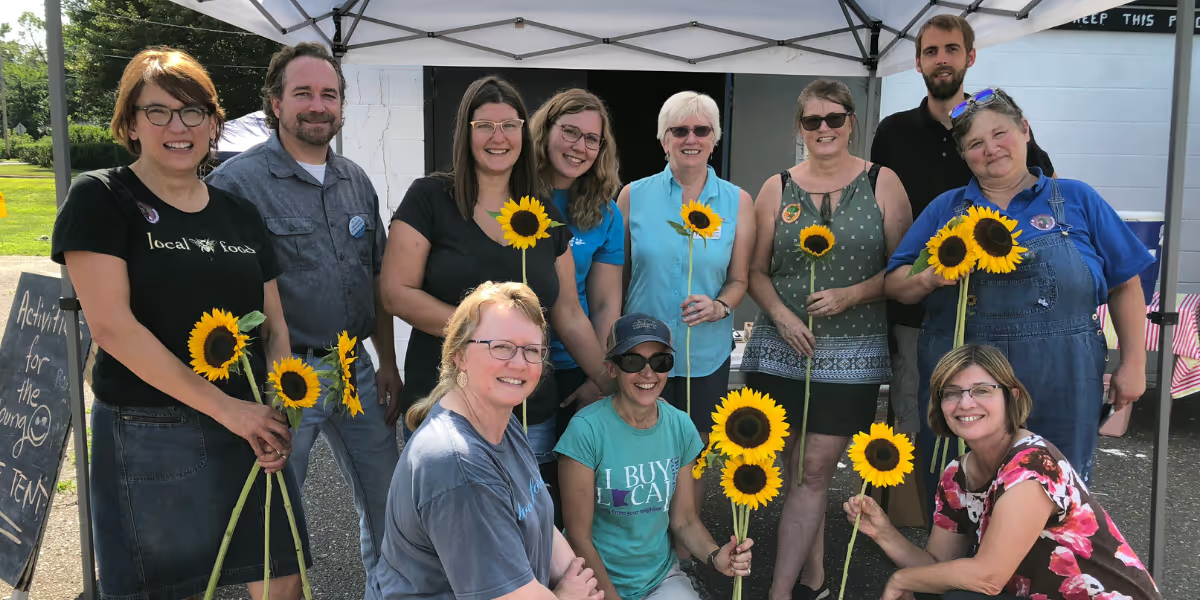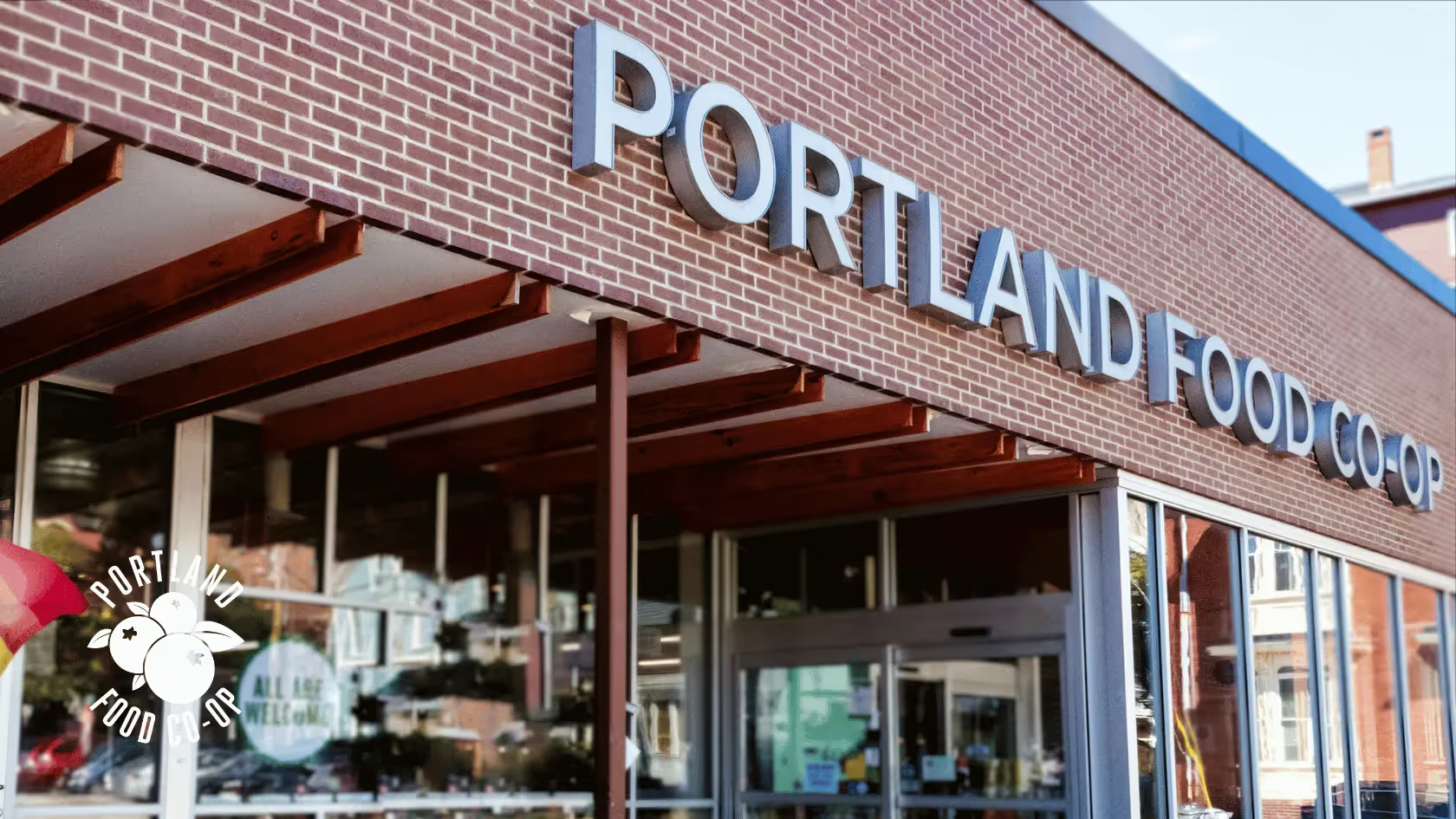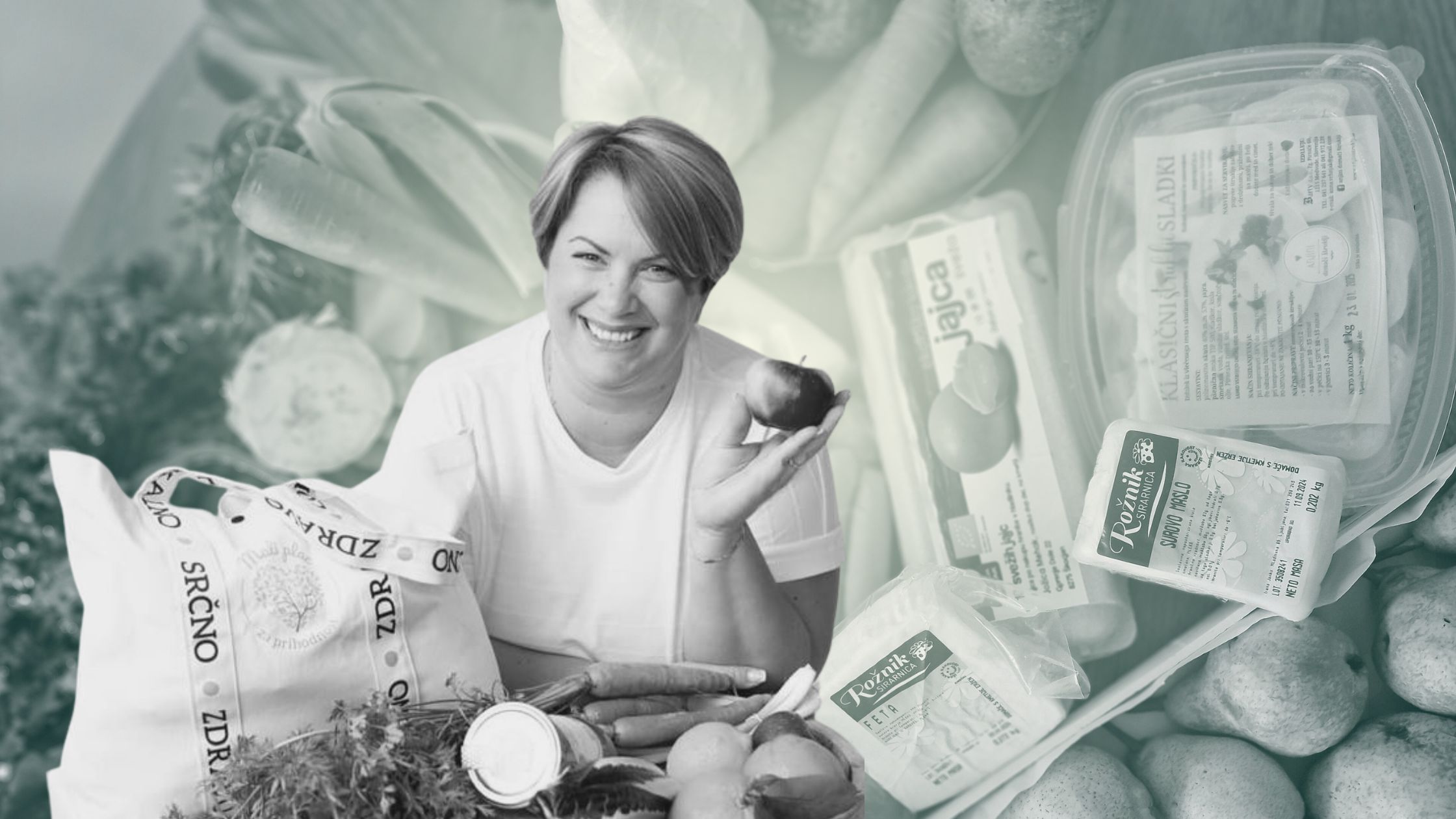Free Workshop | Farm Marketing Meets AI: Learn ChatGPT Workflows for Busy Farmers
.webp)
+1 (855) 699 1026

When you think of local food, most people think of places like California. For us “insiders, actively working in the industry every day, we know that in recent years Minnesota has grown into a thriving local food scene. Farmers’ markets contribute $64 million to the state’s economy, and CSA programs contribute an additional $10.5 million.
Furthermore, local food is served in 123 school districts and 68% of the state’s hospitals. The residents of Minnesota are excited about local food, and there are still many opportunities to improve access.
Increasing accessibility to local food is the hardest challenge of being a farmer. Sara George, Vice President of Minnesota Farmers’ Market Association (MFMA), learned this quickly after finding herself in the world of local food. Starting out as a small vendor at the Wabasha Farmers’ Market in Minnesota, Sara found her life’s passion and has been working on behalf of Minnesota farmers ever since.
In 2012, she became the manager of the Wabasha Farmers’ Market. In this role, she wanted to create a better market for her community. Soon after, she quickly introduced EBT and SNAP sales, WIC and Farmers’ Market Nutrition Vouchers, the Power of Produce (PoP) program – where children between the ages of 4 to 12 receive $2 tokens every time they visit the market to purchase their own produce - and receive various other educational tools. These programs helped vendors increase sales and made an inclusive space for the whole community.
With the continued success of the market, her focus shifted to also serving institutional and wholesale customers. Before they could, the market needed a Wholesale Food Handlers License which allowed them to legally aggregate produce from multiple vendors and sell to institutions. With the help of the Minnesota Department of Agriculture, the Wabasha Farmers Market became the first farmers’ market in the state to receive this license! Shortly after, they were selling produce to the Wabasha-Kellogg schools and the local hospital, St. Elizabeth’s Medical Center.

But, after a year of running the food hub, it was evident they needed to streamline operations. Constant communication was needed between the school and the vendors for ordering, with Sara in the middle. In a week, she averaged between 18-21 calls and encountered many errors along the way. It became nearly impossible to track and communicate effectively what was ordered and when it needed to be delivered.
After receiving the Sustainable Research and Education (SARE) grant, the Wabasha Farmers’ Market had the resources to be able to research for an online system that would function best for their needs.
This is when they found Local Orbit (now Local Line)—the online sales and distribution platform built for food hubs, farmers, and markets. The system allows their wholesale customers to order in bulk, allow aggregation, and pay online. The system also communicates these orders to the vendors, dramatically reducing order errors.
Since transitioning to the online system, their market managers and vendors save time on manual entry and phone calls. Their rate error has significantly decreased and has allowed them to be the first online food hub run out of a farmers’ market in the state - a huge accomplishment for local food in Minnesota!
With the innovative approach of the Wabasha Farmers’ Market online food hub, Sara George along with a team from Renewing the Countryside have created the Minnesota Farmers’ Market Aggregation project. The project is a partnership with the Minnesota Farmers’ Market Association (MFMA) and the Minnesota Institute of Sustainable Agriculture (MISA) and builds upon the exciting pilot program started by the Wabasha Farmers’ Market.
The project will allow market managers across the state to build relationships with institutional and wholesale buyers, such as restaurants, schools and hospitals, industry mentors, and amongst each other creating a community and “hub” for local food. The mission is to normalize market aggregation and give market managers the tools to be able to run a successful and profitable food hub. Eight different farmers’ markets have been selected with associated buyers, and managers will be given an extensive guidebook, model and Local Line software to help them be successful.
This project sets a tone for the future of local food accessibility in the state. The exciting work of Sara George, Jan Joannides from Renewing the Countryside, and the entire team, is creating a future where local food in Minnesota can become a thriving industry!
“Farming is hard. The only way our farmers succeed is if we support them. If consumers bought more local food, we could create happier and healthier communities.” says Sara when asking about why she farms, “I do it all for the smiles on the kids faces. They are excited about food and if they can get excited, then we should all get excited.”
The Minnesota Farmers’ Market Aggregation project is a huge win for local food and could inspire markets across the country, and ultimately, globally to start their own hubs. It is becoming evident that the future of local food is online and accessibility is a problem we are all trying to solve - however this team has already found part of the solution.
The Local Line team is thrilled that we are playing a role in the success of the Wabasha Farmers’ Market and the future success of the 8 other Minnesota markets. Every state needs their own Sara George!
Learn more about Local Line solutions for farmers' markets.
To find out more about the project, visit their website. To get in touch with the project director, reach out to Jan Joannides, and to see what software they’re using, check out Local Line.


